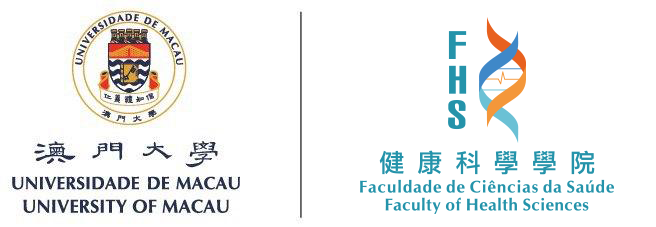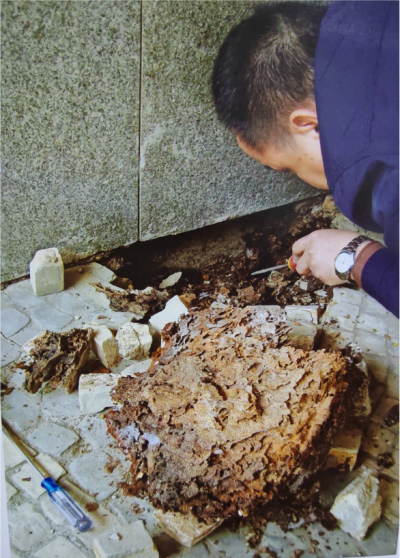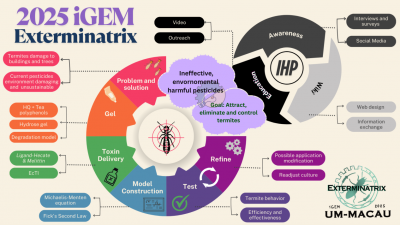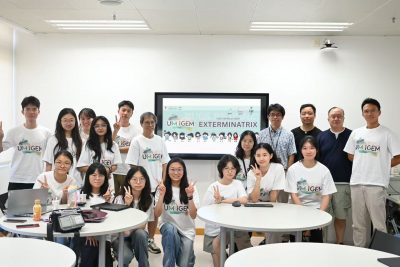13 undergraduate students from the Faculty of Health Sciences (FHS) of the University of Macau (UM) have formed team, preparing for the 2025 International Genetically Engineered Machine (iGEM). This will be the 7th consecutive year UM has participated in this global synthetic biology competition. Guided by FHS Professor Gary WONG, Associate Professor Leo Tsz On LEE and Tzu-Ming LIU, Assistant Professor Qihan CHEN and Jack Chon Lok LEI, the team aims to develop a more effective, environmentally friendly, and sustainable approach to termite control.
The termite problem is a predicament faced worldwide and is deteriorating under the trend of global warming. Termites mainly feed on cellulose and hemicellulose in plants and wood, thus causing severe damage to ancient trees and wooden buildings in Macao and throughout the world. While existing control methods—such as chemical sprays, bait traps, and microbial treatments—offer varying degrees of success, they often come with drawbacks including environmental pollution, inconsistent efficacy, and high costs.
In response, the UM iGEM team aims to develop a novel bioengineered solution based on genetically engineered bacteria. The team has designed two experimental approaches. The first involves using Escherichia coli (E. coli) to produce hydroquinone (HQ) as an attractant, melittin and plant-based trypsin inhibitor (EcTI) as toxins, and setting up containers with special structures to trap and kill termites. The second approach extracts the attractants and toxins produced by E. coli and encapsulating them in cellulose gel to form a toothpaste-like substance for application as needed. To optimise the performance of their product, the team is employing the Michaelis-Menten equation and Fick’s Second Law to establish models, which are respectively used to optimise enzyme reactions and predict the effectiveness of the product usage. Both approaches will undergo rigorous testing, with the team hopeful that their solution will offer a high-impact, low-pollution method of termite control that mitigates structural damage to buildings.
iGEM was founded by the Massachusetts Institute of Technology (MIT) in 2003. Through participation in the iGEM competition, students can deepen their knowledge of the discipline and cultivate their research capabilities. Simultaneously, iGEM provides a platform for applying biology to solve real-life problems, allowing biology to shine in practical applications beyond classroom.




